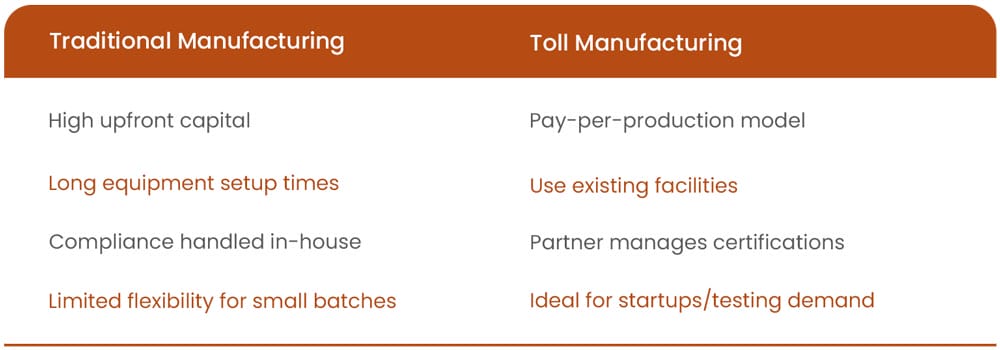
Picture this: A Seoul-based K-beauty startup launches a viral vitamin C serum, but instead of investing millions in factories, they partner with a Philippine manufacturer. Six months later, their product is on shelves worldwide—sans the overhead. This isn’t luck; it’s the power of cosmetics toll manufacturing, a strategy fueling brands from indie labels to household names. And the Philippines? It’s quietly dominating as the region’s smartest outsourcing hub. Here’s why.
Toll Manufacturing 101: Your Formula, Their Expertise
Toll manufacturing lets brands sidestep the headaches of factory ownership. You provide the recipe, packaging, and vision; your partner handles production, compliance, and scaling. It’s like a ghost kitchen for cosmetics—low risk, high agility. The Philippines has emerged as a hotspot for this model, with its cosmetic exports growing 17% year-over-year, per the Philippine Statistics Authority.
The Philippine Edge: More Than Just Cost Savings
Sure, labor costs here are 30% lower than in China, according to World Bank data. But the real magic lies in the details:
- Regulatory savvy: The Philippines follows ASEAN Cosmetic Directive standards, aligning with EU regulations—a golden ticket for global distribution.
- Ingredient innovation: Local manufacturers excel at tropical-friendly formulations (think: humidity-resistant creams, UV-blocking serums).
- Speed-to-market: Proximity to major Asian ports slashes shipping times to markets like Japan and Australia.

3 Trends Driving the Philippines’ Cosmetic Boom
- Clean Beauty Demand: Brands like Human Nature (a Philippine success story) prove local manufacturers can pivot to organic, vegan formulas fast.
- Hybrid Textures: Think jelly cleansers, serum-infused masks—products requiring niche tech that toll partners already master.
- Custom Packaging: From bamboo compacts to refillable airless pumps, Philippine factories blend eco-innovation with cost efficiency.
Choosing Your Partner: 5 Non-Negotiables
Not all toll manufacturers are equal. Prioritize partners who:
- Specialize in cosmetics (not just “general goods”).
- Offer end-to-end services (R&D, filling, labeling, export docs).
- Have FDA/ISO certifications—non-negotiable for U.S./EU markets.
- Provide small MOQs (500–1,000 units) for startups.
- Embrace sustainability (zero-waste processes, solar-powered facilities).
This is where Vitamen Beverage Concept, Inc shines. With a focus on customizable, eco-conscious production, they’ve become the backstage force for brands wanting premium quality without the factory footprint.
The Hidden Costs of Cheap Partners

A 2023 ASEAN Cosmetics Association report found that 41% of brands using budget manufacturers faced issues:
- Delays from outdated equipment
- Mislabeled ingredients causing customs holds
- Poor QC leading to product recalls
